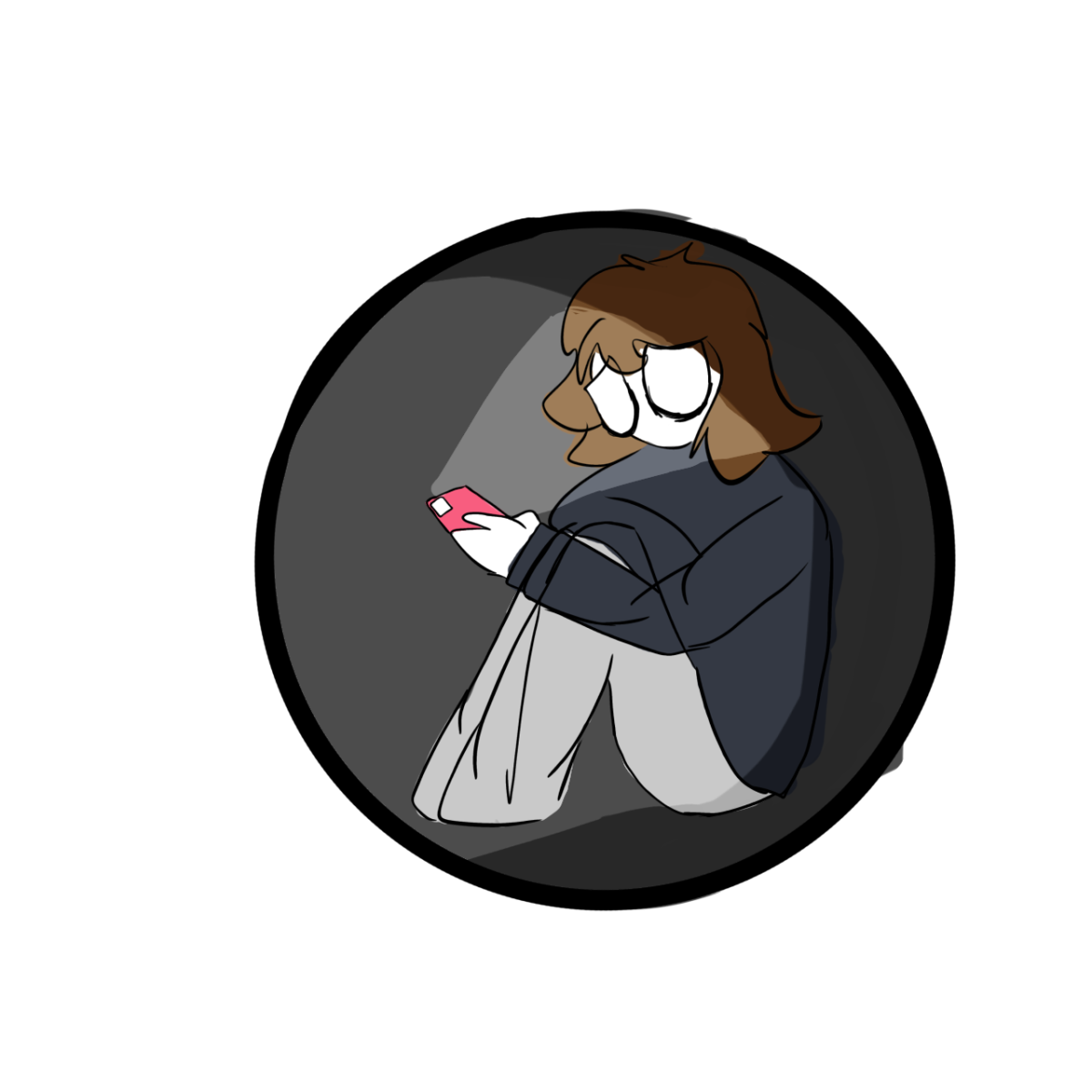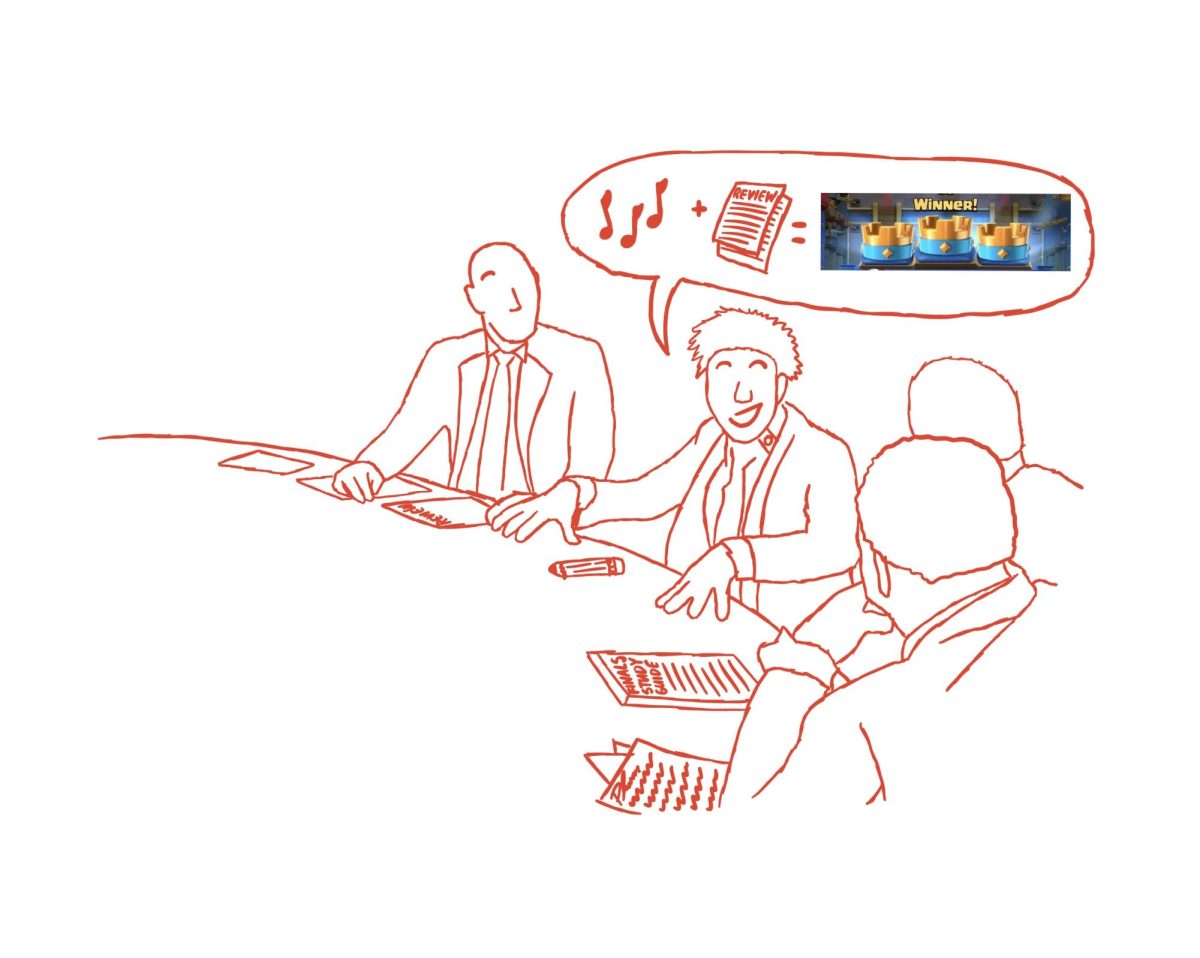How hard would it be to lead a life in complete isolation? Believe it or not, in the 21st century it’s not that hard. Working from home has become normalized, and food delivery services have made it possible for food to be dropped off right at your doorstep without exchanging a word with anyone. Though this form of complete isolationism may seem extreme, I do not think it will take very long before this lifestyle becomes the new normal.
Being lonely isn’t your fault, but there are things you can do to change it. One way is to try to join a lot of clubs and activities to make friends. Clubs allow people to meet other like-minded people within their vicinity. Community events are another great way to go and make friends. v
According to a Psychiatry.org poll: one in three Americans feel lonely every week, with younger generations having higher rates of loneliness than the former ones. These numbers are strange because Gen Z is supposedly the most “connected” generation. We have the technology to get in touch with someone on the other side of the world in a way that was simply unimaginable 100 years ago. While Gen Z may have the means for communication, that does not necessarily mean that they will use those means.
Rising numbers of lonely teenagers is worrisome and should be given more attention. These increasing numbers may be tempting to write off as a cause of the pandemic, but numbers of loneliness among the younger generations have been increasing even before Covid.
The cause of this loneliness, to me, seems to stem from what people decide to do in their free time. Psychiatry.org reports that 50% of lonely Americans distract themselves by using TV or social media. These artificial dopamine boosts mask as substitutes for human interaction, but in reality, leave the person worse off because once they break off from the cycle of scrolling and indulging endless amounts of content, they realize that they have spent hours in total isolation.
Loneliness has become more dangerous with the endless distractions we have access to today—especially the screens. In the past there was nothing else to do except be with your thoughts. Many men, that we now recognize as great, were lonely. Abraham Lincoln, Napoleon, Leo Tolstoy, and Beethoven were all reported to have been lonely. They achieved success, in my opinion, because they were great men with great ideas. Great ideas that would have never seen the light of day if scrolling was the main priority of their lives.
There is one main difference between the isolationism of then and isolationism of now— the lack of sitting in solitude. One benefit of being isolated is being isolated with your thoughts. I would argue that the simple act of sitting alone with your thoughts led to the creation of philosophical ideas, great pieces of art, works of literature, and any great innovation. Ideas start from somewhere but they can never form if you are constantly distracted. These days, younger generations are getting all of the negatives from isolationism: lack of human interaction and connection, without any of the benefits.
The impact of loneliness on society cannot go unsaid, especially when it affects our own communities. Humans were creatures made to be in relationship with other humans. Without these relationships, humans suffer and struggle to develop into mroe competent beings. Luckily, students at Saint Viator seem to be faring better than the rest of the country. When asked if they are comfortable sitting alone with their thoughts, 70% of students answered 4 or 5, the most comfortable. Ironically, 61.3% of students also reported being on their phones for 3-6 hours daily. This leaves the question: even if comfortable sitting in solitude, how many people actually do it on a daily basis?
Effects of the invisible epidemic: Isolationism
The shock waves of isolationism can lead to modern mental health issues,
creating a purpose for education relative to this topic
Donate to Viator Voice
$50
$500
Contributed
Our Goal
Your donation will support the student journalists of Saint Viator High School. Your contribution will allow us to purchase equipment and cover our annual website hosting costs.
More to Discover









